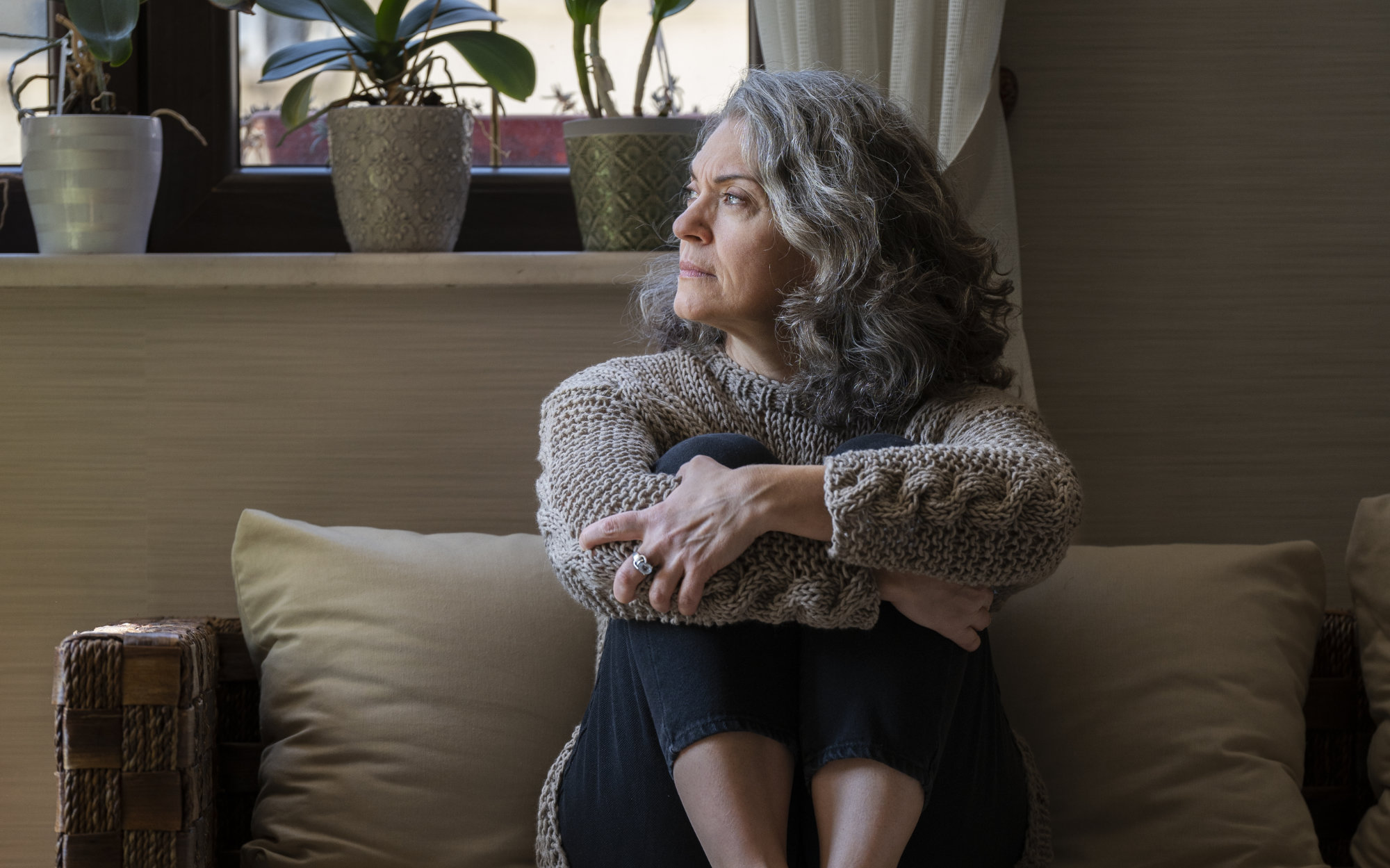
Jackie’s story involves hard-won experience and an inspiring recovery. After a severe mental health crisis, she found support with OMH partner Watch CIO, and it empowered her to become a peer mentor for others facing similar challenges.
The Shock of Severe Mental Illness
Jackie’s life changed dramatically in 2013 when she was diagnosed with schizoaffective disorder, a condition she describes as quite rare. She’d never had a mental health illness before; the sudden onset of the condition was terrifying.
“I had psychosis episodes, so I would think that somebody was trying to come and kill me. It was quite severe, and so it was quite frightening,” Jackie recalls. The paranoia became all-consuming. “It was almost like everything had a code to it. I almost had the feeling that it was going on a big world stage, so it was for everybody to see”.
Because the illness felt like reality, she did not initially realise she was unwell. It wasn’t until she could no longer sleep that people around her became aware of the crisis.
“It became really heavy going. I would literally start going through the whole night with no sleep. And that really took its toll because I had a young child. I didn’t know what was happening to me at all. So I wasn’t aware even that something was wrong.”
The situation peaked when she was sectioned and put into a mental health unit. Being separated from her two-year-old daughter was the “hardest part of it”.
Jackie reflects on how terrifying it was to have her paranoia seemingly confirmed by the authorities’ involvement: “They sent sort of police round to my house to collect me and things like that, and it just added to my paranoia and fed into everything I believed”.
Finding Hope and a Healing Space
Jackie credits the combination of anti-psychotic medication and time in hospital with helping her to get better, though she stresses it was a “very gradual, slow process”. A central part of achieving her ongoing stability came through connecting with Watch CIO.
The main beneficial ingredients at Watch were its environment and peer-led approach. While she was “nervous about trying it” at first, Watch’s organised, comforting atmosphere helped Jackie’s trust to grow.
“It was a very safe space. You were aware that it was very safe, and you could relate to people. You all had things in common, and I gradually built friendships with those people, and so the trust just grew.”
Watch offered therapeutic activities, which helped Jackie connect to a new sense of self. “I loved arts and crafts,” she says. “It was almost resetting my life”.
Through this safe space, she began to manage her self-care and rebuild her self-confidence.
“It’s not so much recovering who you were, but building the new you,” Jackie explains, adding that the experience of a severe illness means you “are never the same again”.
“When I was in that mental health unit, I really let everything out. It sort of helped me to get back to probably my inner sort of me. I almost embrace what I went through. And I can see it in a positive light. I can actually see it as a positive rather than a negative.”
Giving Back Through Peer Support
Jackie’s full recovery led her to want to help others through their own challenging times. After completing peer training through Watch CIO, she began working as a peer mentor with Peer Connections, an Open Mental Health project.
Jackie realised the value of her lived experience. “When I found that I could help people, that helped me as well”. The work offers a two-way therapeutic benefit.
Jackie had a deeply rewarding experience supporting one woman in particular who shared the exact same, rare condition as she did.
“She was so pleased to talk to someone who could relate to what she was feeling and to see that I’d come out the other side. That was a really helpful interaction.”
Jackie has now been a peer mentor for over three years, helping people to change their lives through one-on-one support. She strongly recommends the work to others who have found their own recovery.
“If you are well and you are managing yourself, I think it’s good to do. It’s effective and it works, so if someone feels well enough to do it, it’s brilliant and I think it’s really worthwhile.”
Jackie’s story shows that recovery is possible and, with the right support, that a mental health crisis can lead to a positive new path.
How to Contact Open Mental Health
If you or someone you know needs support, call Mindline Somerset anytime, day or night, on 01823 276 892 or freephone 0800 138 1692. If you need help urgently, Crisis Safe Space is an out-of-hours service for anyone really struggling with their mental health. Instead of going to A&E, making a doctor’s appointment or suffering in silence, you can arrange a one-to-one session with a member of the Crisis Safe Space, who will be willing to listen and able to help. Call the numbers above or book an appointment online.